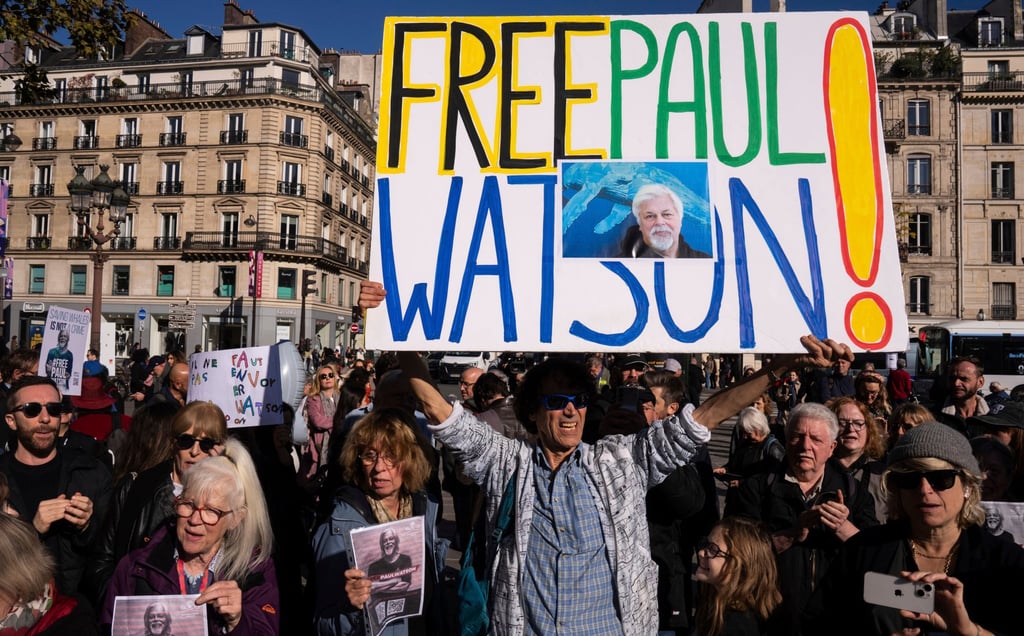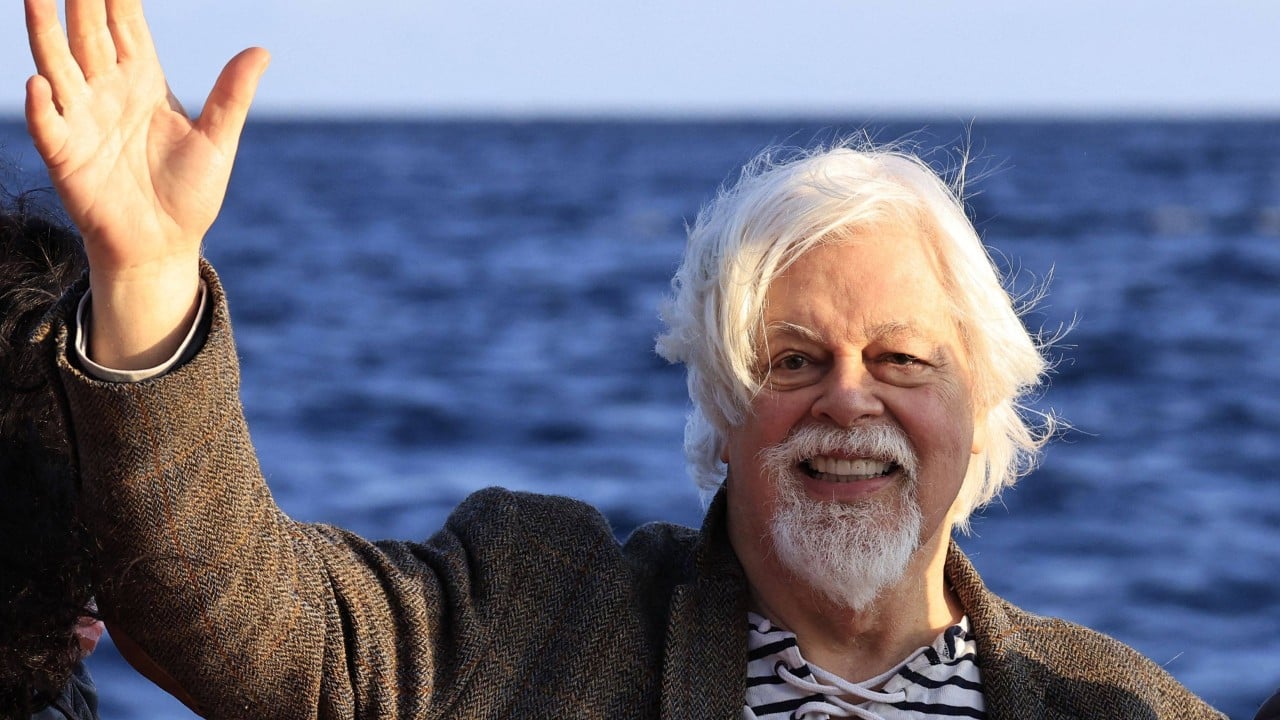Interpol’s decision to drop a decade-old red notice against Paul Watson, the outspoken founder of marine conservation group Sea Shepherd, has sparked outrage in Japan, with critics accusing the international police agency of bowing to Western bias and undermining justice for alleged attacks on Japanese whalers.
Advertisement
Interpol announced on Tuesday that it had removed the red notice – a non-binding request for the arrest and extradition of a wanted individual – after a review by its independent Commission for the Control of Files, which found the request raised concerns about political motivations and potential rights violations.
Watson, 74, had been wanted since 2012 after Japan requested the red notice over clashes in Antarctic waters two years earlier, when his group hurled rancid butter at whaling vessels and allegedly interfered with harpoon operations.
The Canadian-American was initially taken into custody in the German city of Frankfurt that same year but was later released, despite the red notice being in effect.
Hopes of a successful extradition were revived when Watson was arrested in Greenland last July. Japanese officials were optimistic that Denmark – which governs Greenland and also oversees pro-whaling territories like the Faroe Islands – might be more amenable to handing him over.

But those hopes were dashed in December when the Danish government announced it would not comply with Japan’s request and released Watson from custody, citing the lack of assurances that his time in detention in Greenland would count towards any future sentence.

